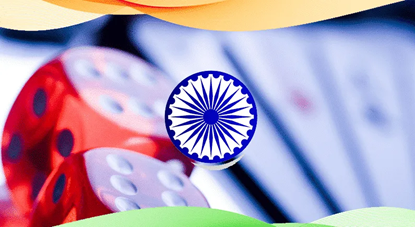Introduction
According to various data and information, there is no doubt that the scale of the online gambling industry in India is expanding rapidly. It is reported that by 2022, the Indian gaming market has reached 1.3 billion US dollars, and it is expected to grow to 3.4 billion US dollars by 2024.
For an emerging industry in a developing country, 3.4 billion dollars is not a small amount, and it is still growing continuously!
But the rapid development of the industry will inevitably bring some problems, and the always playful Indian government's "mischievous operations" have never disappointed.
We all know that in the colorful land of India, everything seems to be dipped in a unique "curry flavor". From the street corner samosas to the majestic Taj Mahal, even the bustling world of online gambling is no exception, deeply dyed by this "spice". Today, let's approach this curry-flavored online gambling world of India with a sense of humor and curiosity.
The Indian Personality: "Curry Dancers" at the Gambling Table
Indians, a naturally optimistic and lively nation, their personality is like a pot of boiling curry, passionate and unrestrained. When this personality meets online gambling, it's simply a "curry-flavored" carnival. In the eyes of Indians, gambling is not just a game, but a spice of life that makes ordinary days colorful.
Imagine a group of Indian friends sitting in front of the computer, the screen flashing with colorful gambling games, where they cheer and sigh, but regardless of the outcome, their love for life and optimism never change. They are like the "Curry Dancers" on the gambling table, adding a unique splash of color to the world with their laughter and cheers.

The Indian Government's "Curry-style" Policy Maneuvers
In India, the policies of the gambling industry are always full of uncertainties and difficult to grasp.
One moment there's a "strict ban on gambling" that deters people; the next, there's a "legalization of skill games" that tempts people to engage.
To put it mildly, the Indian government's policies on online gambling are indeed a "full flavor" feast.
The Indian authorities first introduced the "Central Rules for Real Money", intending to regulate the industry. However, it turned out to be a prelude to the "main dish". Subsequently, a "self-regulatory body" was established, seeming serious but actually warming up for the upcoming "mischievous operations".
The main event is here—a 28% tax rate. It sounds not too outrageous, but the key is that this tax is not collected based on the internationally usual GGR (Gross Gaming Revenue) but on the uniquely targeted FFV (Full-Face Value, i.e., the full amount of each bet or deposit). This virtually leaves operators with curry but no rice, just staring!

Operators' "Curry-style" Lament
Facing such policies, the highest online gambling industry body in India, AIGF, directly issued a "full of curry flavor" wail: "This tax rate is simply making us face the north wind!" They stated that this method of taxation not only makes it difficult for enterprises to survive but also may prompt more people to turn to illegal operations, throwing the entire industry into chaos.
Imagine operators waking up every day, not thinking about how to attract more players, but rather calculating how to avoid bankruptcy. This scene is just like a real-life "Slumdog Millionaire", except this time, the "millionaires" might not even afford a slum.

Illegal Operators' "Curry-style" Revelries
While some cry, others laugh. Those illegal operators have started a "curry party" in offshore areas. They are beaming because the policies of the Indian government inadvertently provide them with camouflage. In corners unreachable by the Indian government, they enjoy a "tax-free" celebration, as if saying, "Look, those who follow the rules don't earn as much as we do, and we're even safer!"
Conclusion: Reflections with a Taste of Curry
It is well known that the Indian government loves to trap foreign enterprises, treating companies from Europe, America, and East Asia with the same disdain. However, even their own people, as long as they can










